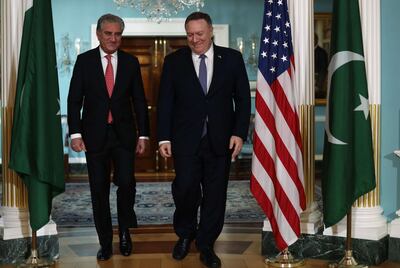The Afghan Taliban has again hinted at being amenable to a limited ceasefire deal with the United States to push peace negotiations over the line, but has stopped short of making an explicit offer.
The ceasefire proposal was revealed to Reuters by Taliban sources who said the insurgent group would be open to a 10-day truce with the foreign forces and a reduction of violence with the Afghan forces to facilitate a deal.
This is the second time in recent weeks that Taliban sources have hinted at a willingness to curb attacks in an effort to reach a peace deal with the United States. Earlier, on December 29, Taliban sources made similar statements. However, the group's spokesman in Afghanistan, Zabihullah Mujahid, quickly denied those reports.
The Taliban spokesman in Doha, Qatar, where the group has a political office and the venue for the talks with the US, posted on Twitter that progress had been made and a deal would be signed "very soon".
“The negotiators have had fruitful discussions yesterday and today ... regarding the signing of an agreement and related ceremony,” Suhail Shaheen said on Friday.
However, Hekmat Azamy, deputy director at Centre for Conflict and Peace Studies in Kabul, told The National that the deal under discussion focused on a reduction of violence rather than a ceasefire.
“The discussions are still on and they are about a reduction of violence. The ceasefire is not agreed,” said Mr Azamy, who has been following the talks in Doha closely.
“There are a few discrepancies still being sorted out between the Taliban and Americans. But it is possible that the talks should wrap up and the deal may be signed sooner than expected,” he said.
The Taliban and the US, represented by special envoy Zalmay Khalilzad, have held several rounds of talks over the past year and a half. Negotiations appeared to have been derails in September after the Taliban attacked a compound in the Afghan capital that killed several foreigners including a US soldier. However, the talks resumed in November and are seemingly close to a deal favourable to the parties involved.
The conclusion of a deal between the US and the Taliban is expected to pave the way for talks between the Taliban and the Afghan government and the Taliban. The Taliban has so far refused to talk to the Afghan government, calling them a “puppet regime”, but may be open to talks once a deal with the US is signed that will initiate the withdrawal of the estimated 14,000 foreign troops in the country.
The Taliban source told Reuters that the group had agreed to meet with the Afghan government in Germany after the deal is signed.

However, the Afghan government has insisted on a ceasefire before negotiating with the insurgents.
"We, unfortunately, don't have any word from them [Taliban] on a ceasefire yet," Javid Faisal, spokesman for the Afghan National Security Council, told The National.
He said the Afghan government would be ready to move forward "only after a ceasefire”.
The Taliban has continued to attack foreign and Afghan forces while simultaneously negotiating a peace deal with the US administration, causing heavy casualties.
The Afghan government did however support the recent Taliban prisoner exchanges that helped restart the talks between the US and the insurgents.
The government's insistence on a ceasefire first, although warranted in view of the mounting toll on both troops and civilians, could delay direct peace negotiations with the Afghans.
Mr Azamy said it also bought time while the outcome of the presidential election is resolved. Incumbent Ashraf Ghani and his rival, Chief Executive Abdullah Abdullah, both claim victory in the September 28 vote amid a dispute over the validity of hundreds of thousand of ballots cast.
“For the Afghan government the elections are still a priority. Once the elections are sorted they can prepare for peace,” said Mr Azamy.
“The government understands that the Taliban won’t agree to a ceasefire and thus made it a precondition,” he said.

